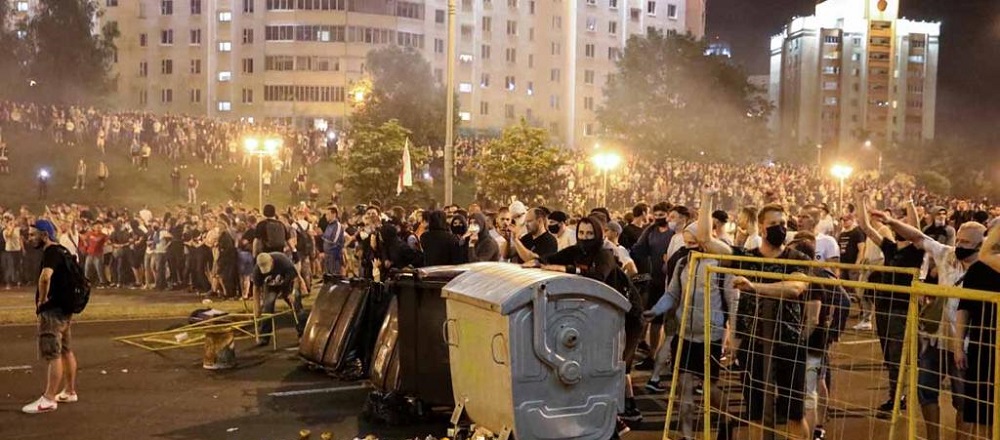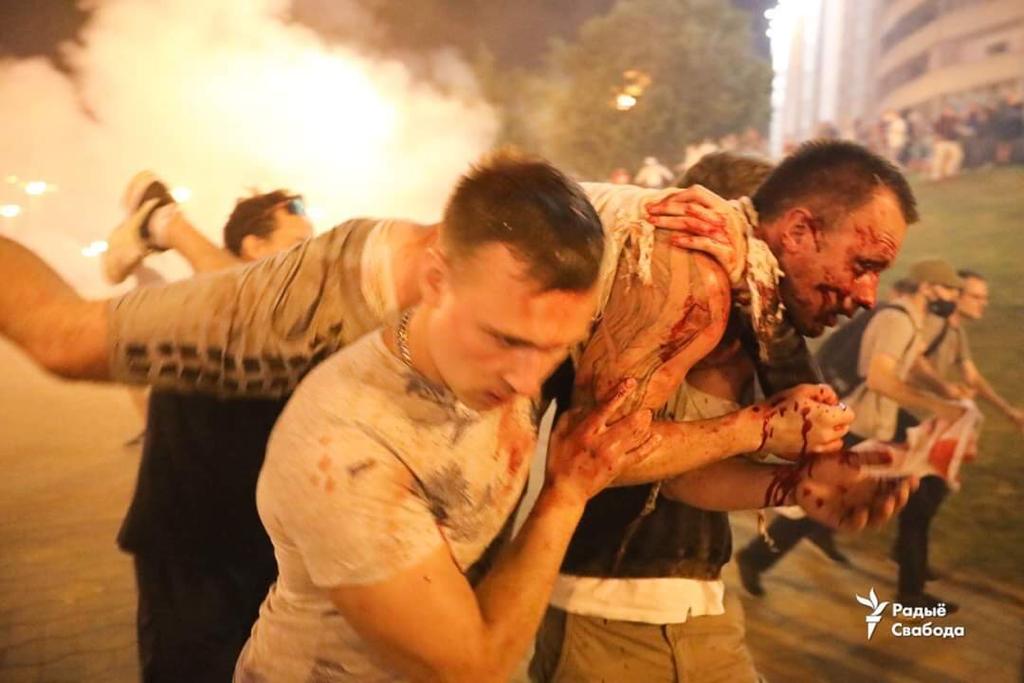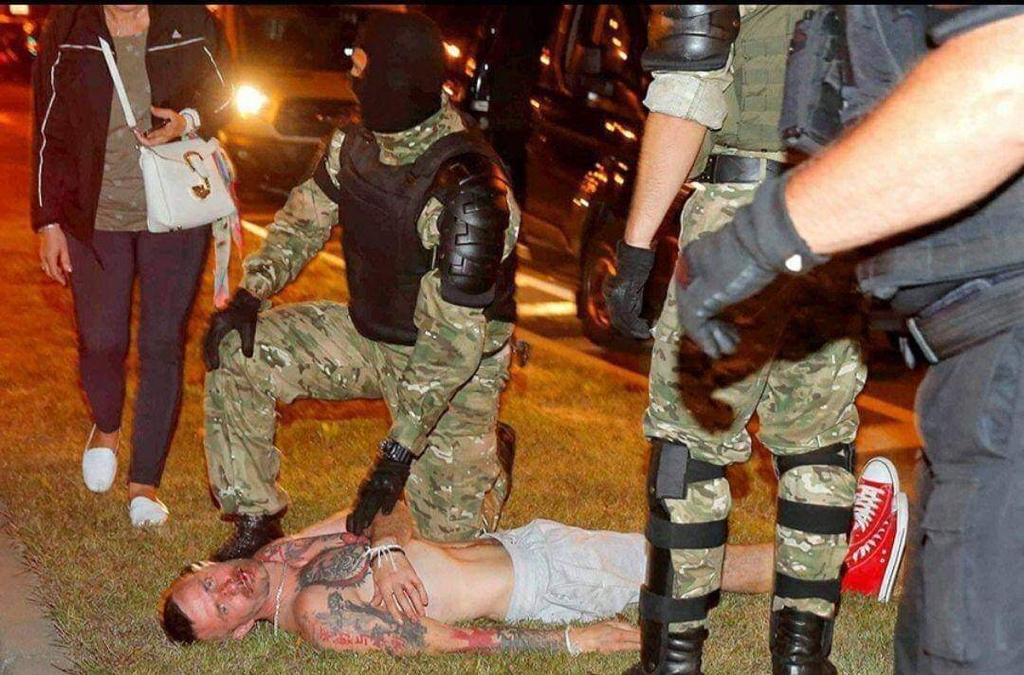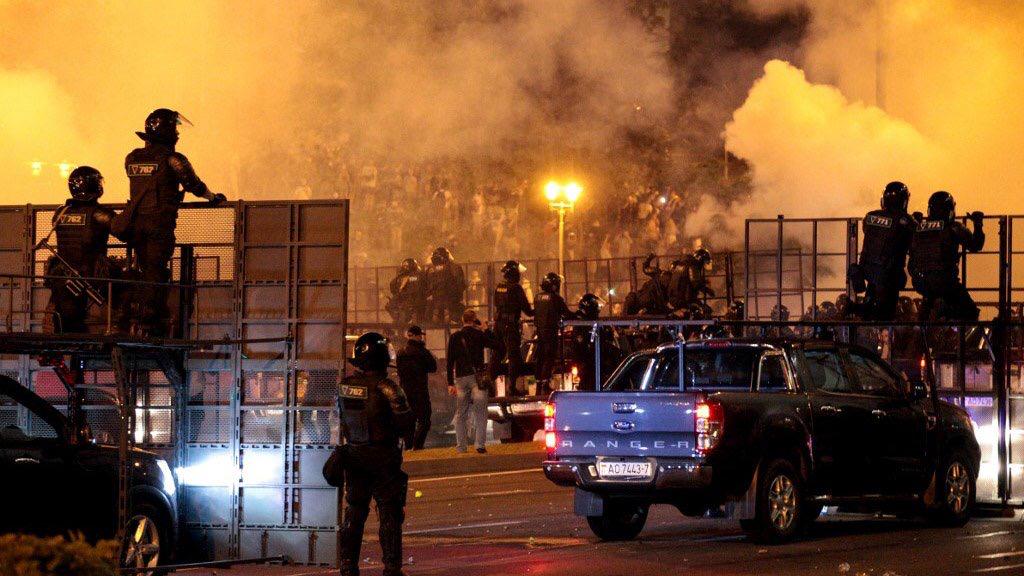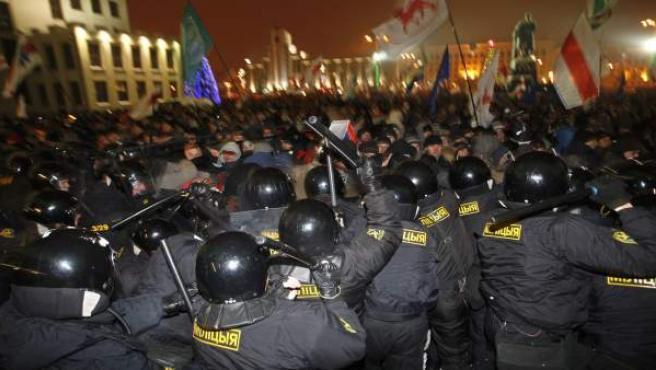Ya nada volverá a ser lo mismo en este país de Europa Oriental. La nueva reelección de Aleksandr Lukashenko se ha producido a un costo político altísimo y un masivo y generalizado repudio popular al dictador.
Por Rubén Tzanoff
El domingo 9 de agosto por la noche se dieron a conocer los resultados oficiales de las elecciones presidenciales en la República de Bielorrusia. El régimen dictatorial le asignó a Lukashenko el 80,23% de los votos. En su sexta presentación en 26 años, ha hecho lo mismo de siempre: se ha reelegido a sí mismo como presidente.
Las elecciones fueron fraudulentas. La Comisión Electoral Central impidió la presentación de varios candidatos opositores, entre ellos el banquero Viktar Babaryka y el bloguero Siarhei Tsikhanouski, que fueron encarcelados con procesos penales para evitar que compitieran. Svetlana Tikhanouskaya, esposa de Tsikhanouski, tomó la posta y con apoyo popular logró presentarse. Para Lukashenko, la sociedad no estaba “lo suficientemente madura para votar por una mujer”, ya que necesitaba un “poder fuerte”. El 9,9% de los votos que el régimen le asignó a Tikhanouskaya, no se corresponde con el amplio apoyo que recibió desde que se presentó y los porcentajes superiores al 70% que se pudo ver en aquellas mesas que escaparon al control gubernamental.
Durante la campaña, los activistas fueron perseguidos por la KGB, los actos fueron reprimidos y se encarcelaron a cientos de personas. A los observadores independientes se les ha impedido el acceso a las secciones electorales durante los días de votación. No es casualidad que previamente se haya realizado una innumerable cantidad de denuncias de fraude y se haya advertido sobre la negativa del régimen a reconocer cualquier otro resultado que no fuera el triunfo de Lukashenko.
El pueblo y la clase trabajadora dicen Basta!
Ni bien conocidos los resultados el pueblo estalló. Hubo manifestaciones y enfrentamientos durante casi seis horas en las calles de Minsk, Brest, Gomel, Grodno y Vitebsk, entre otras. Algunas fabricas, con la gran metalúrgica de Minsk entraron en huelga. Ni las amenazas, ni el Metro cerrado, pudieron evitar que miles de personas expresaran su descontento. La policía reprimió las protestas con carros hidrantes, gases lacrimógenos, porras y balas de goma. Según las denuncias de las ONG de derechos humanos Vesná y Spring 96, una persona murió atropellada por un vehículo policial, hay informaciones que indican que hay más personas asesinadas. Hubo más de 120 detenidos, que podrían ser condenados a entre 8 y 15 años de prisión, por causas de “desorden masivo y violencia contra agentes de la policía”. El régimen también ha bloqueado las comunicaciones y el acceso a Internet. Sin embargo, lo fundamental es que Bielorrusia está atravesada por las luchas más importantes desde la primavera de 1991, cuando el poder fue sacudido por un mes de huelgas. Así se retoma el camino para sacarse de encima a la losa burocrática y autoritaria en el gobierno.
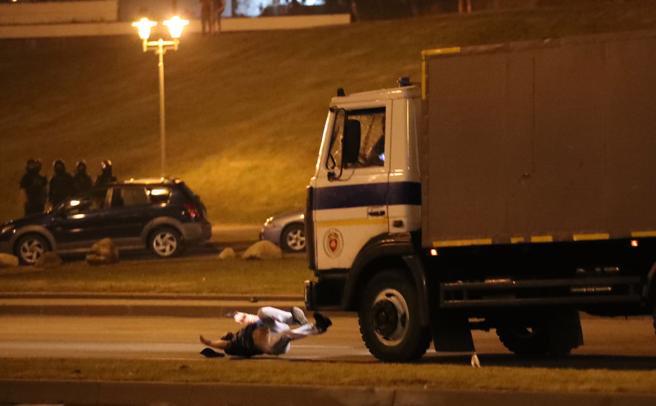
Aunque lxs trabajadorxs han participado individualmente en el proceso, la convocatoria a la huelga general ha estado en debate por primera vez en mucho tiempo, a partir del sindicalismo independiente. Y aterrorizó tanto al gobierno como a algunos opositores, que no movieron un dedo para que se concretase. Semejante proceso les ha dado impulso a debates estratégicos, de los que somos parte, sobre la necesidad de construir un partido de los trabajadores, independiente de la burocracia y de los sectores opositores de la burguesia.
Sintonía rebelde
Más allá de las desigualdades, el pueblo se ha ubicado en sintonía con la rebelión negra en EE. UU., con la libanesa, con los reclamos por libertad y derechos sociales, ante la pésima gestión de la pandemia, en este caso por el negacionismo de Lukashenko. Desde la Liga Internacional Socialista, como parte activa de la lucha, repudiamos la violenta represión estatal, exigimos el fin de las persecuciones, la anulación de las causas penales, la investigación y el castigo a los asesinos de manifestantes. Reclamamos la inmediata libertad de los presos políticos y activistas democráticos. Llamamos a los pueblos a expresarse por libertades democráticas en Bielorrusia. El triunfo estará mucho más cerca si la rebelión encabezada por los jóvenes y las mujeres, empalma decididamente con la clase trabajadora, sí se impone la huelga general, la movilización y métodos de lucha contundentes. Vamos a continuar la campaña de solidaridad con el pueblo bielorruso que venimos realizando y llamamos a los pueblos del mundo a expresarse en el mismo sentido.

